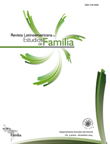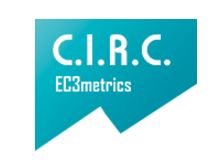Autores
Resumo
Abstract: The author speaks about the transformation of conflict and particularly introduces the idea that dialogue really is a way out of the conflict and out of the consensus. This is connected with a notion to which she refers as a relational ethics. She analyzes the implications of dialogue, transformation and relational ethics in terms of how families, communities and education are thought of. She does not talk about a particular way of positioning yourself in front of conflict, or about some specific and practical ways of doing it, but hopes that this relationship with families and education will arise from the conceptual analysis she develops. The author introduces the idea of dialogue, neither as any form of communication nor as conversation. Dialogue is a special form of interaction that does not happen very often and usually does not occur spontaneously; it can certainly happen, but often opportunities to engage in genuine dialogue have to be created. By taking Mikhail Bakhtin’s notion of dialogue ―when he speaks about the dialogue as a responsive activity (responsive dialogue)―, the author poses that being responsive places us as practitioners in what she considers a relational ethics, which is when you are attentive to the process of being related in itself. In other words, instead of focusing on individuals, rather than focusing on certain forms of action, in certain behaviors, in certain objects, in certain entities or contexts, you really should look at what we do together, what is what we are doing or creating together; what kinds of opportunities are emerging? So, if you take this approach on dialogue, it is recognized that there are always multiple ways of looking at a situation. Then the most important aspect of the dialogue is that although there professionists trained on how to handle dialogue, at a certain way, it does not mean that it is the only way to look at a situation. When you think about the families or educational contexts with whom you work, or when you face conflicts and differences within the community, it is important to maintain the idea that there are multiple realities that are constructed, and how you can be responsive to this multiplicity, without judging them.
Referências
Anderson, Rob, Leslie A. Baxter, Kenneth N. Cissna, eds. 2004. Dialogue: Theorizing difference in communication studies. California: Sage Publications.
Anderson, Harlene. 1997. Conversation, language, and possibilities: A postmodern approach to therapy. New York: Basic Books.
Bakhtin, Mikhail. 1981. The dialogical imagination. Austin: University of Texas Press.
Bakhtin, Mikhail. 1986. Speech genres and other late essays. Austin: University of Texas Press.
Bateson, Gregory. 1972. Steps to an ecology of mind. New York: Ballentine.
Buber, Martin. 1970. I and thou. New York: Scribners.
Chasin, Richard and Margaret Herzig. 1992. Creating systemic interventions for the sociopolitical arena. In The Global Family Therapist: Integrating the Personal, Professional and Political, eds. B. BergerCould and D. H. DeMuth. Needham, MA: Allyn and Bacon.
McNamee, Sheila and Kenneth J. Gergen. 1999. Relational responsibility: Resources for sustainable dialogue. California: Sage Publications.
Penman, Robin. 2000. Reconstructing communication: Looking to a future. New Jersey: Lawrence Erlbaum Associates.
Sampson, Edward E. 2008. Celebrating the other. Ohio: Taos Institute Publications.
Seikkula, Jaakko, J. Aaltonen, B. Alakara, K. Haarakangas, J. Keranen, and M. Sutela. 1995. Treating psychosis by means of open dialogue. In The reflecting team in action, ed. S. Friedman, 62-80. New York: Guildford Press, 1995.
Shotter, John. 2004. The manufacture of personhood, and the institutionalization of mutual humiliation. Concetps and Transformation 9(1): 1-37.
Stewart, John and Karen Zediker. 2002. Dialogue as tensional, ethical practice. Southern Communication Journal 65: 224-242.
Wittgenstein, Ludwig. 1953. Philosophical investigations. Oxford: Blackwell

 PDF (Español)
PDF (Español)
 FLIP
FLIP



















